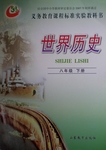题目内容
I was caught in a traffic jam for over an hour, otherwise I ________ you waiting for such a long time.
A. will not keep B. have not kept
C. had not kept D. would not have kept
练习册系列答案
 探究与巩固河南科学技术出版社系列答案
探究与巩固河南科学技术出版社系列答案
相关题目
题目内容
I was caught in a traffic jam for over an hour, otherwise I ________ you waiting for such a long time.
A. will not keep B. have not kept
C. had not kept D. would not have kept
 探究与巩固河南科学技术出版社系列答案
探究与巩固河南科学技术出版社系列答案